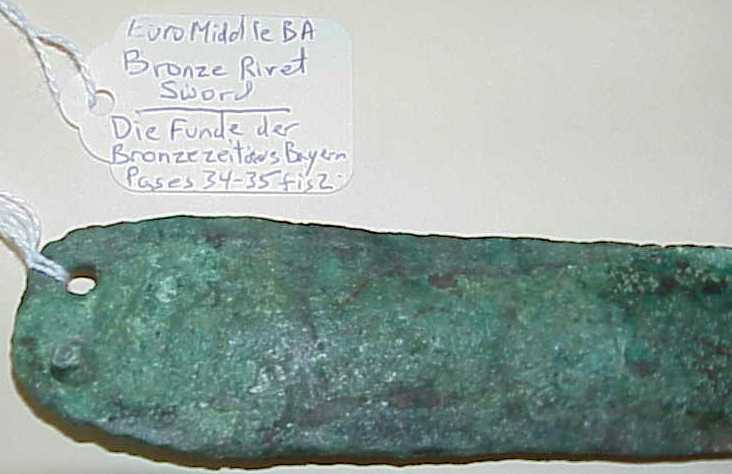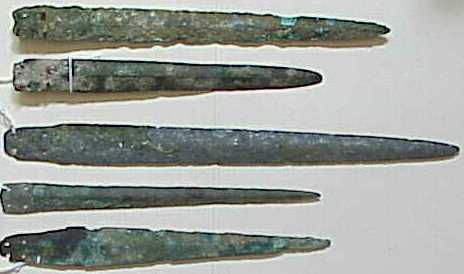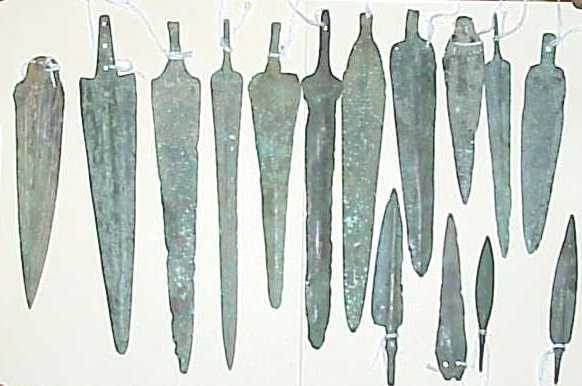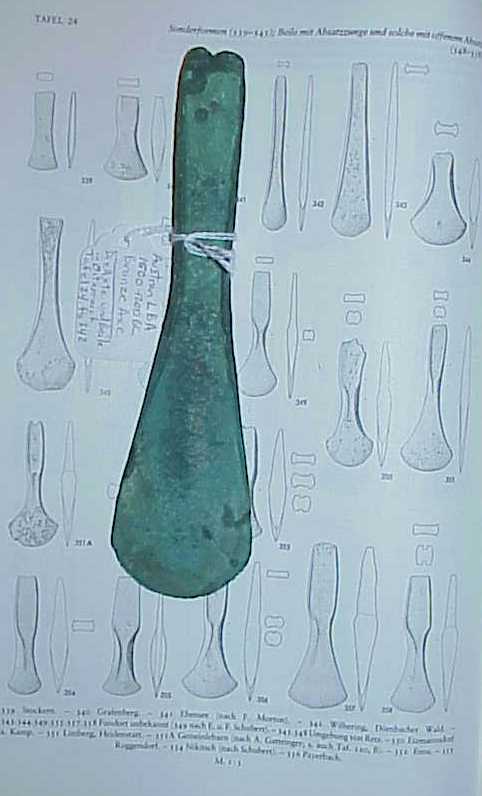In October of last year I was the successful bidder on the Hermann Historica, Munchen, Bavaria, Auction 45 Lot 1129 which included bronze pieces that included two pins, an axe and the sword below.
If anyone wants to get onto the HH emailing list for notice of their auctions should contact me and I will forward your email to Ernst Wagner who would be pleased to assist you. Just don't bid against me! Their catalog will be posted on their website. Here is their description of the lot:
Lot Nr.1129 Schwert und Beil, bronzezeitlich, um 1200 v.Chr. Bronze mit starker grüner Patina. Kräftige Klinge, am Ansatz zwei Nietlöcher, eines mit erhaltener Vernietung. Randleistenbeil mit gerundeter Schneide. Dazu zwei verbogene Bronzenadeln mit Kerbdekor und flachen Abschlussköpfen. Gereinigte Bodenfunde. Länge 16 bis 44 cm.Condition: II-III Limit: 500.00 EURO
550,00 EURO
If you want to see the picture in their catalog, go to: http://hermann-historica.com/ and click on the first catalog picture, then look for lot number 1129. Sorry, pictures do not accompany the text when I cut and paste.
The sword 1s 17.3" (44 cm.) long and retains one of the rivets. I figured my cost for this sword at $550. The rivet is .5" (1.4 cm) long and I have no idea how this could have been securely mounted to a hilt, hope someone can make a suggestion. The rivets extend less than .25" from the blade surface.
I date this sword to 1600 BC, Middle Bronze Age, but it could be earlier, the axe in the lot dates to the Late Early Bronze Age, several hundred years earlier.
Hansel, Alix. Die Funde der Bronzezeit aus Bayern. Page 35
I have also posted a discussion thread that duplicates this posting on The Sword Forum International.
Best regards, John Piscopo

[ Download ]
[ Download ]


